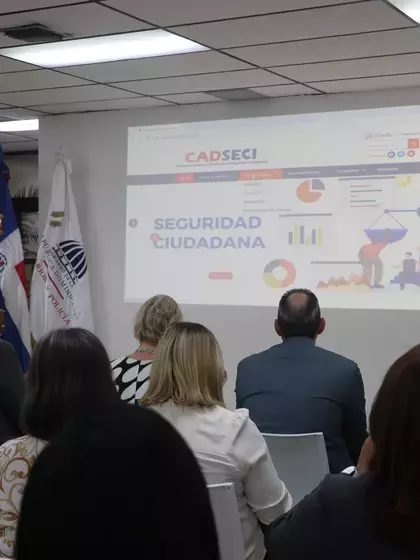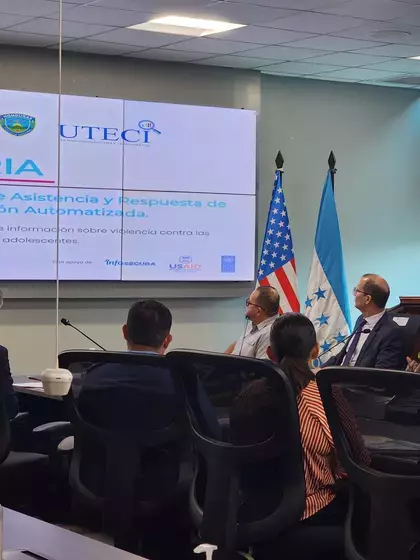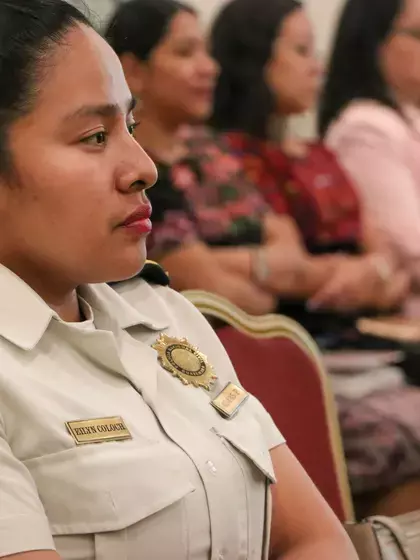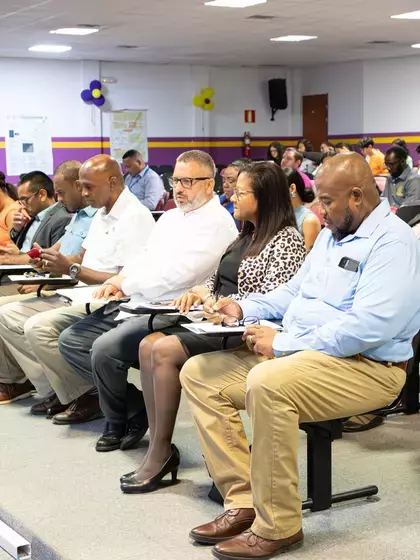DatAction episode four showcases analysis of state of citizen security in Belize and Honduras
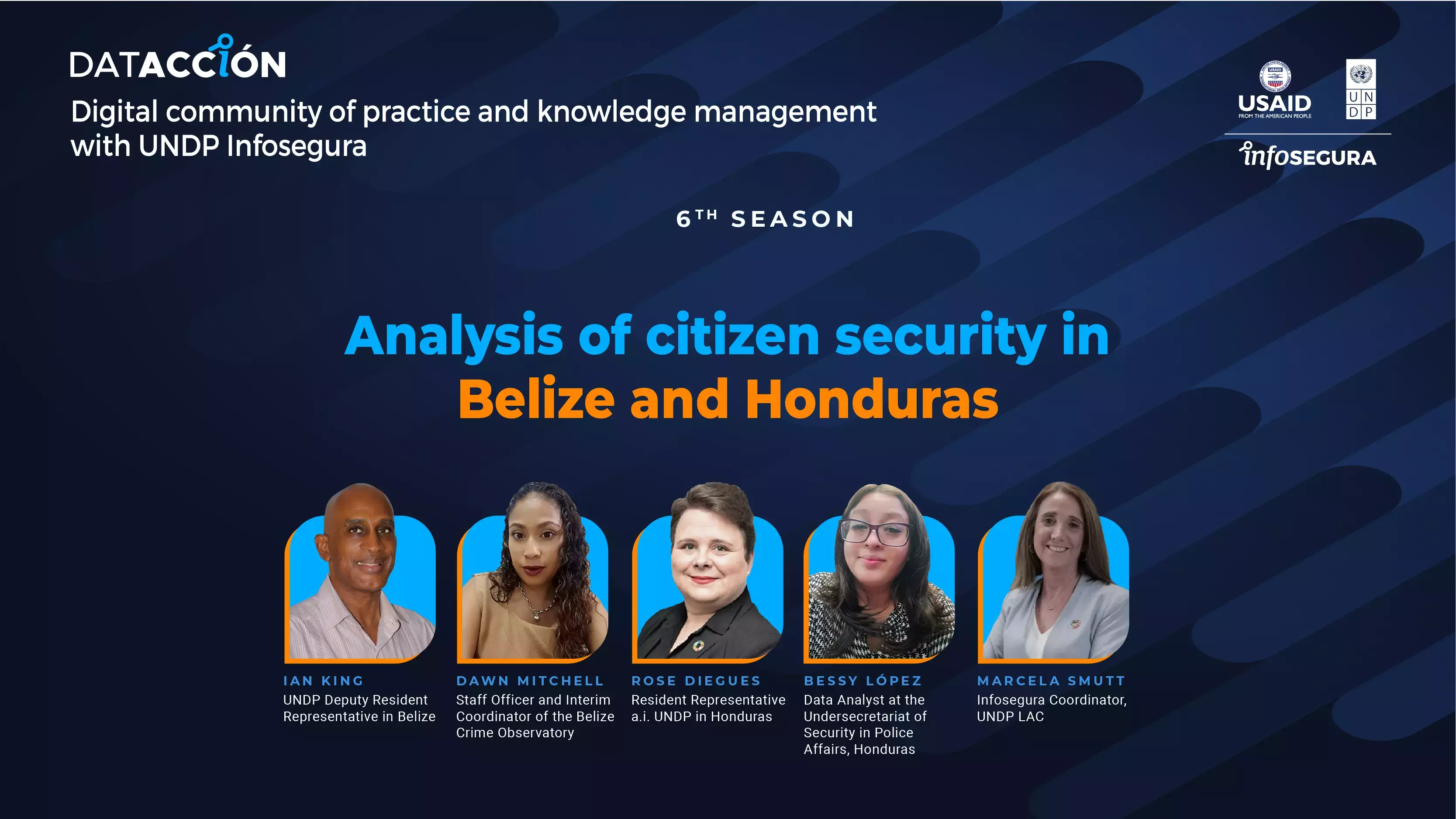
Data on citizen security in Belize and Honduras was under the spotlight on Thursday, May 25, when season six episode four aired. DatAction is the digital community of practice and knowledge exchange produced by the InfoSegura Regional Project of the United Nations Development Programme (UNDP), with the support of the United States Agency for International Development (USAID).
This episode featured Ian King, Deputy Resident Representative for UNDP in Belize, Dawn Mitchell, Staff Officer and Acting Coordinator of the Belize Crime Observatory (BCO), Rose Diegues, Resident Representative ai. for UNDP in Honduras, and Bessy López, Data Analyst at the Sub-Secretariat for Security in Police Affairs of Honduras.
In the opening remarks, UNDP representative in the Caribbean nation Ian King emphasized the joint work the government is doing with the UNDP, thanks to the support of USAID. King noted the fundamental nature of this collaboration in, “really moving toward an evidence-based process to focus on and address citizen security with innovation, learning and exchange.”
For the Government of Belize, Dawn Mitchell listed the developments and setbacks in citizen security registered during 2022, and presented the analysis. On the positive side, she noted an almost 10% decline in the number homicides committed in 2022 as regards to 2021. As for the negative, she warned that there had been a rise in crimes involving sexual violence and domestic violence. The government responded by creating the Movement against Domestic Violence in Belize to fight back against this issue.
Speaking from Honduras, Rose Diegues underscored the importance of reliable and recent data about security, because, “only by getting more and better information on citizen security from a gender perspective, will we be able to improve people's lives, and build more just, peaceful and cohesive societies.” Diegues also praised UNDP's joint work with the Central American country's government in developing “digital solutions and integrated systems that promote access to public information, open data, with accountability and comprehensiveness.”
Last, Bessy Lopez, representing the government of Honduras, presented data in the Analysis of Citizen Security in her country for 2022. Her presentation highlighted the reduction in the homicide rate with respect to 2021, and emphasized that “having timely and accurate information on crime rates and risk factors makes for better understanding of security problems and more effective decision making at all levels.”
DataAction aims to network, showcase and energize the work that national and local institutions, academia and civil society undertake to improve public safety indicators in the region. The InfoSegura community of practice also encourages knowledge sharing and discussion to analyze the state of citizen security, justice and social cohesion, focusing on innovative solutions for security.
Over the course of nine years, UNDP InfoSegura Regional Project in partnership with USAID has worked with national and local institutions, as well as civil society organizations, promoting innovative solutions to help people improve their lives and to help societies become more peaceful, just and cohesive.
You can explore these topics and get further details of each case on our YouTube channel and by following us on social media.

